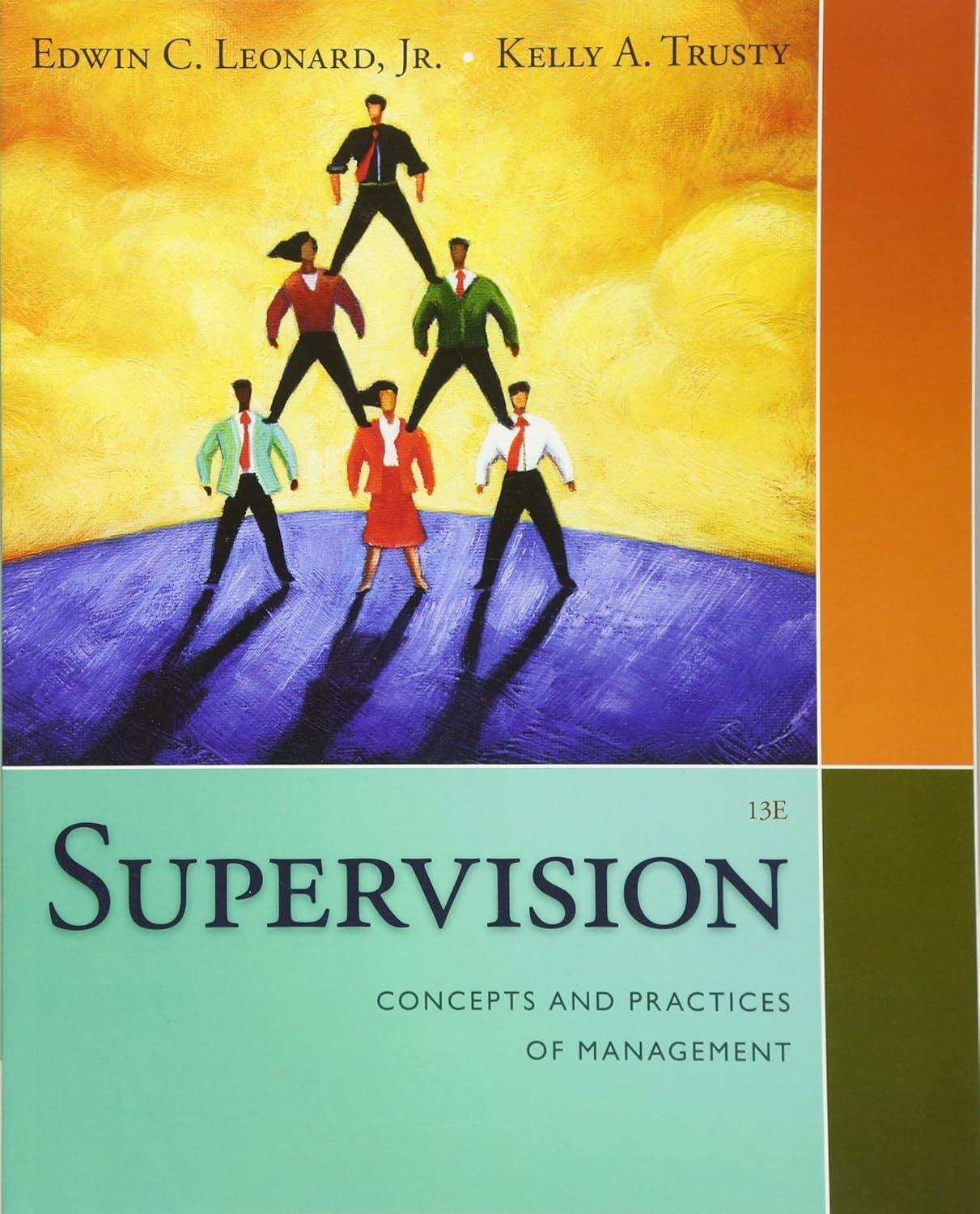Some supervisors believe that autocratic supervision, using formal authority to get results, is more effective than general
Question:
Some supervisors believe that autocratic supervision, using formal authority to get results, is more effective than general supervision. At times close supervision, detailed instructions, and a climate of strict compliance (Theory X tactics) are appropriate, but generally these practices result in low employee morale, resistance, discontent, and frustration.
Conversely, participative management and general supervision assume that workers are motivated to do their best (Theory Y assumptions). Therefore, both involve delegation and provide freedom for employees to choose how to go about their work once the supervisor issues directives. In participative management, workers are empowered to take the initiative through the provision of increased authority and responsibility, and they are encouraged to contribute ideas to the decision-making process.
These management styles, when used in authentic contexts, benefit supervisors and employees. The supervisor saves time by empowering other members of the team to work independently. When employees gain experience in making decisions based on their own judgment, they become more competent and more promotable. A supervisor’s goal should be to help employees move to the next level.
The extent to which a supervisor uses the general, autocratic, bureaucratic, or participative style requires a delicate balance. Ultimately, the supervisor is responsible for achieving departmental objectives. Therefore, the supervisor should consider the task and the individuals involved and choose the most appropriate style in order to get work accomplished.? LO857
Step by Step Answer:

Supervision Concepts And Practices Of Management
ISBN: 378854
13th Edition
Authors: Edwin C. Leonard, Kelly A. Trusty





